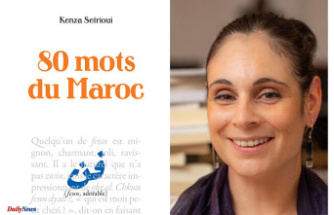A small card behind which there is a big decision: On the organ donor card we can record what should happen to our body after death. Important questions and answers.
Do I want to donate my organs after death? This question can cause a sinking feeling in your stomach. Because nobody likes to deal with their own death. However, it is worth making a decision about organ donation - if only with a view to your loved ones. Because it is a great relief for relatives if they know the will of the deceased, according to the German Foundation for Organ Transplantation (DSO).
Five questions and answers about the little card:
Where can I get an organ donor card?
If you are already in the doctor's office or in the pharmacy, you can ask for an ID there. You can also order it free of charge from the Federal Center for Health Education (BZgA) at organspende-info.de.
If you don't attach so much importance to a fixed card, you can simply download the organ donor card there as a PDF document to print out. By the way: According to the BZgA, it is theoretically even sufficient to record your wishes for organ donation informally on a piece of paper.
Anyone who now comes up with the idea of attaching their decision to donate their organs to their will should better leave it alone. Because if the will is opened after death, it is too late for an organ removal, according to the BZgA.
What can I do wrong when filling it out so that the ID card is not valid in the end?
"If the information contradicts itself or it is not clear what the deceased person's will was, the organ donor card is not valid," says Prof. Martin Dietrich, Acting Director of the BZgA. "In this case, there is no organ donation."
You should therefore only tick one option on the organ donor card. The signature must not be missing either - only this makes the ID legally valid. The best way to fill out the ID card is to put it in your wallet so that you can carry it with you on a daily basis.
If I have two organ donation cards that contradict each other - what then applies in an emergency?
Missing out on the first ID card, filling out a second one - that can happen. But: What applies if two organ donation cards appear after death that say different things? "The most recently documented decision and thus the organ donor card with the younger date applies," says Martin Dietrich. If you want to be sure, destroy the old card as soon as you get a new ID card.
By the way: Since your own decision is only documented on the organ donor card, you can change your mind at any time - without having to report it.
According to the Federal Ministry of Health, a central register is still in the works and should be available by the end of 2022 at the earliest. But even then, nobody is obliged to register their decision there.
Should I have my organ donor card with me on vacation?
Yes, advises the BZgA. If you are really well prepared, you can even take a variant in the language of the holiday destination with you. The organ donor card is available in 29 languages for download as a PDF file on the BzgA website.
Background: According to the BZgA, the laws on organ donation in the holiday country can be completely different than in Germany. While in Germany you can only be an organ donor if you have consented, in France, Spain or Italy, for example, there is an opt-out solution. There you are automatically a donor - unless you have actively objected.
In the event of a death abroad, the law of the respective country applies. And according to the BZgA, this is completely independent of the nationality of the deceased person. Even if you don't want to donate your organs, you should have an organ donor card with you on holiday that shows your decision.
Which illnesses prevent me from becoming an organ donor?
There are only a few diseases that rule out organ donation across the board. Even someone with cancer can become an organ donor - at least when the disease is no longer acute. "If within five years after completion of the therapy no new cancer occurs, the cancer is no longer considered acute. In such a case, organ and tissue donation is basically possible again," says Martin Dietrich.
For most illnesses, doctors check individually after death whether the organs are suitable for donation. In the field "Space for comments/special information" you can note which illnesses you have - and thus make the work of the medical staff easier.
By the way: There is no age limit for organ donors. According to the German Foundation for Organ Transplantation, the oldest organ donor in Germany to date was 98 years old. Her liver was successfully transplanted, according to the foundation.












